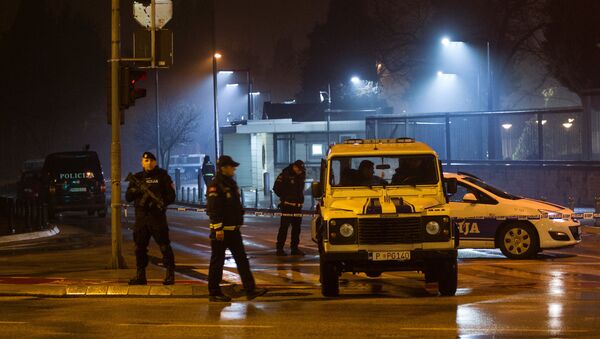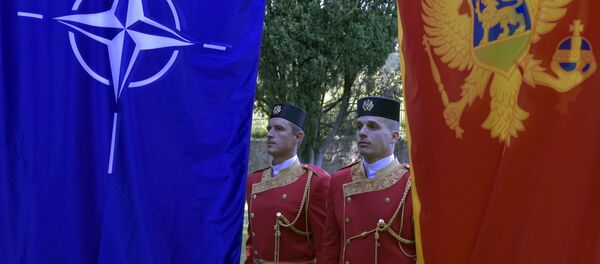The Montenegrin police confirmed that 43-year-old Dalibor Jaukovic, a former serviceman of the Federal Republic of Yugoslavia's armed forces had thrown a hand grenade into the building of the US Embassy in Podgorica, after which he committed suicide with a second grenade.
The motive behind the attack is as yet unknown. However, the Facebook page of Jaukovic contains a photograph of the document saying that on June 16, 1999 — shortly after the end of NATO aggression against Yugoslavia — he was awarded a medal for his services in the field of defense and security. The document was signed by then President of the Federal Republic of Yugoslavia Slobodan Milosevic.
Enis Bakovic, an official representative of the police, told a press conference in the Montenegrin capital that the attacker used M75 hand grenades.
"His identity was established on the basis of DNA analysis, and he was recognized by a former relative," he said.
According to Bakovic, the Montenegrin police, together with the FBI, are looking into the potential motives behind the attack, and seeking out whether Jaukovic was acting alone or had accomplices.
Earlier in the day, the Montenegrin government reported that at 12:30 am (GMT+1) an unknown person committed suicide with an explosive device in front of the US Embassy building in Podgorica. Before that, the attacker had thrown another explosive device at the embassy.
At 00:30, in front of the @USEmbassyMNE building in #Podgorica, #Montenegro an unknown person committed suicide with an explosive device. Immediately before, that person threw an explosive device from the intersection near the Sport Center into the US Embassy compound. (1 of 2)
— Govt. of Montenegro (@MeGovernment) 22 февраля 2018 г.
Following the incident, the US Embassy suspended visa services, and asked American citizens in the city to avoid the embassy building, as well as large gatherings and demonstrations until further notice, citing security reasons.
For its part, the Russian Embassy in the city has boosted its security measures announcing, however, that it would continue to work as usual. No recommendations for the Russians in connection with the incident have been issued yet, the press service of the Russian diplomatic mission in Podgorica told Sputnik.
The breakup of Yugoslavia resulted in the emergence of a number of independent states with borders drawn largely along ethnic lines. However, ethnic tensions continue to simmer, making the Balkans a potential hotbed, according to the Council on Foreign Relations' (CFR) Preventive Priorities Survey 2018.
On June 5, 2017, Yugoslavia's former republic of Montenegro joined NATO, although the citizens of the country voiced their opposition to the move. The decision was made by the country's parliament, without putting the issue directly to the people in a referendum.



